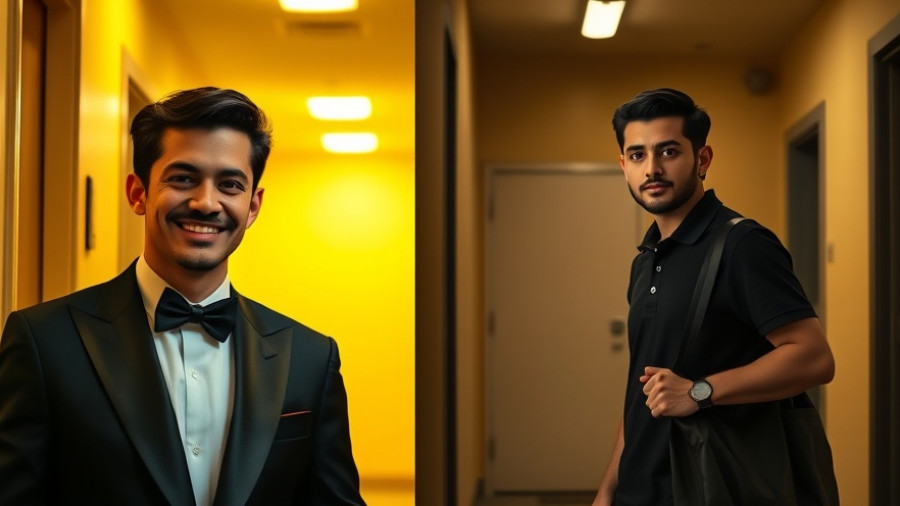
Jan Ravnik's Unique Perspective Amid Criticism
In the world of reality television, few moments create quite as much buzz as professional dancer Jan Ravnik's recent remarks following the public criticisms from former "Dancing with the Stars" (DWTS) champion Maks Chmerkovskiy. Following his elimination alongside partner Jen Affleck, Jan took a moment to express his feelings on the backlash regarding his dance skills, saying, "I’m a person who doesn’t appreciate hate or people who are spreading hate to stay relevant." This sentiment resonates deeply in an industry often dominated by harsh critiques and dramatic rivalries.
The Spark that Ignited the Drama
Chmerkovskiy, known for his vocal opinions, didn’t hold back when he declared that Ravnik had "no business being a pro" on DWTS. He described Ravnik’s technique as lacking foundation and understanding, particularly criticizing his foxtrot performance. On The Penthouse With Peta podcast, he expressed his emotions, adding, "Bro, I’m getting emotional," underscoring how seriously he takes the matter. His wife and fellow dancer, Peta Murgatroyd, joined in, suggesting that Jan’s connection to pop star Taylor Swift played a role in his hiring, rather than purely talent.
Bonds Formed in Adversity
Interestingly, rather than retreating from the negativity, Ravnik has been connecting with fellow DWTS professionals facing similar scrutiny. Recently, he bonded backstage with Rylee Arnold, another DWTS pro, who has also received sharp criticism from Maks. Their camaraderie highlights the support among cast members who know firsthand how brutal this competitive environment can get. As reflected in their backstage encounter, the community often stands together and lifts each other, creating a buffer against external negativity.
A Shift in the DWTS Arena
This growing tension within the pro community brings to light significant questions about the standards and expectations for professional dancers on primetime television. The DWTS format has always mixed experienced dancers with those who bring a fresh perspective from diverse fields — a pocket of hope during and after the competitive challenge they face. Critics like Chmerkovskiy suggest that the show risks its reputation by deviating from traditional ballroom expertise. However, what if this inclusion creates a genuinely new wave of entertainment that resonates with a younger audience? The dynamic has the potential to broaden the appeal of dance in mainstream culture.
Public Sentiment: Support vs. Critique
The public's reaction has been a mixed bag. Many fans champion Ravnik’s refreshing approach to dance and believe his participation in the show reflects a more modern take on the art form. Meanwhile, others share Chmerkovskiy’s feelings, suggesting that the authenticity of ballroom dancing is at risk. This push and pull embodies a larger conversation happening in dance and performing arts today about accessibility and authenticity.
Confronting Celebrity Culture
This feud mirrors a common narrative in celebrity culture: how individuals navigate scrutiny and criticism while fostering growth and resilience. The situation challenges viewers to consider how they engage in discussions about talent, particularly with public figures already under scrutiny. In a world where social media can amplify even the smallest remarks, the need for kindness and understanding has never been more pertinent.
What Lies Ahead for Jan Ravnik?
As the DWTS season progresses, it remains uncertain if Jan Ravnik will return for a second season. His initial success, paired with the backlash, propels further inquiry into how the show will evolve and whether it will balance public opinion with innovative talent. Will Ravnik’s perspective and experiences shape how audience members view professionalism and artistry in dancing moving forward? Only time will tell.
For fans of reality TV and dance, this evolving drama reveals much about personal resolve and the collective sentiment surrounding performance art. It might inspire viewers to reflect on their criticism and support for these artists — urging us all towards a more empathetic approach as we engage with the entertainment we love.
 Add Row
Add Row  Add
Add 




Write A Comment